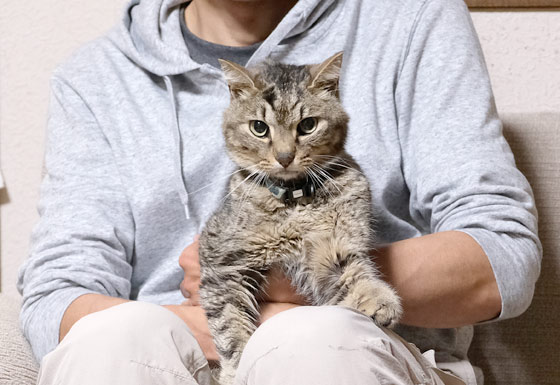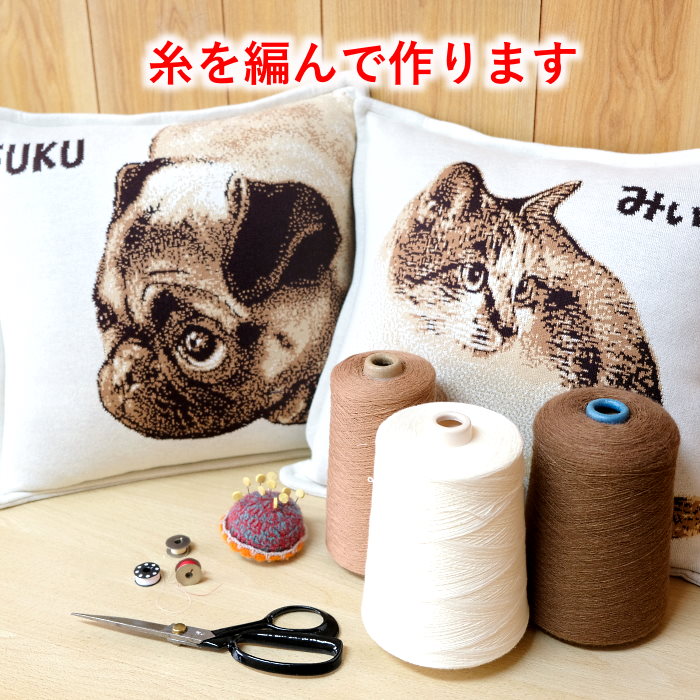When a friend or loved one reaches out to say, “My pet passed away,” it’s likely because they trust you and are seeking emotional support.
In those moments, many of us wonder:
What can I say? What can I do to help?
It’s not always easy to find the right words—especially when the loss is a pet, a type of grief that’s deeply personal and sometimes misunderstood. You may be searching for words that offer comfort, protection, or simply let them know they’re not alone.
In fact, many people come to our website with exactly these concerns, looking for guidance and meaningful ways to support someone they care about.
Customer Stories:
At our shop, we listen to these stories every day.
Then, with care and compassion, we create handmade keepsakes from yarn—memorial gifts based on a photo of the pet, crafted stitch by stitch.
These gifts help express what words alone sometimes cannot.
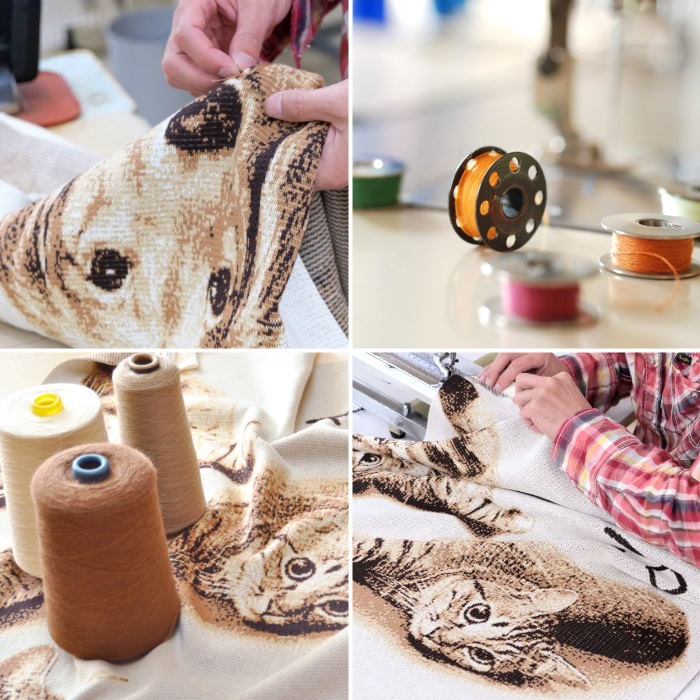
Common Questions We Hear:
It’s completely natural to feel unsure. Offering support after a pet’s passing can be delicate, especially if you haven’t experienced that kind of loss yourself. And yet, the desire to help and be present is powerful.
So What Can You Say?
Over the years, we’ve received countless messages and helped many people through these situations. From those experiences, we’ve learned a lot.
In this article, we’ll share ideas for what to say—and what not to say—when someone loses a beloved pet.
We hope this helps you offer comfort and emotional support in a sincere and thoughtful way.
Understanding the Feelings of Someone Who Has Lost a Pet
When someone loses a beloved pet, you may want to offer words of comfort—but if you don’t understand how they’re feeling, it can be hard to know what to say.
The death of a pet is one of the most heartbreaking experiences in life.
And if you’ve never been through pet loss yourself, you might understand that it’s painful, but still struggle with how to be there for someone who’s grieving.
Some people who’ve never had a pet may find it difficult to fully grasp the depth of that sorrow.
As someone who works closely with grieving pet owners every day, I’ve had the opportunity to hear many stories and emotions. And through that experience, I’ve come to realize something important: The best way to support someone going through pet loss is to try to understand their pain.
If you can be with them in person, simply being by their side can bring great comfort. But even a phone call or a kind message can help ease their sadness and make them feel less alone.
Grieving pet owners often just want someone to talk to.
They want someone to listen, to share in their sorrow—even just a little.
That, in itself, is an act of support.
So, how can we truly understand the pain someone feels after losing a pet?
In the next section, we’ll explore helpful ways to show empathy and offer genuine comfort to those experiencing pet loss.
Start by Simply Listening
Before offering words of comfort, the most important thing you can do is listen.
Take the time to ask how they’re doing and let them share their story.
They may be carrying their grief in silence, unable to talk to anyone about the pain of losing their beloved pet.
When sorrow is bottled up, the pain of pet loss can become even heavier.
In some cases, they may have been hurt by insensitive comments from others.
Or perhaps they’re struggling with guilt, regretting how they handled their pet’s final days.
That’s why being kind and gentle in those moments matters so much.
When someone listens with compassion, it helps the grieving person feel understood.
Their pain may ease just a little—and the gratitude they feel could stay with them for a lifetime.
As we create custom memorial items, many of our customers have said:
“Thank you for listening.”
“This was the first time I could talk about it.”
“It helped so much just to be able to share my feelings.”
Everyone’s experience is different, but they all have one thing in common:
They want someone to listen.
What truly matters is helping them realize they’re not alone.
When we said goodbye to our cat at home, the only reason I was able to get through the grief was because I had family by my side who cried with me.
Once you begin to understand their situation and emotions, the next question is:
What words can truly bring comfort?
In the following section, I’ll share what I’ve learned through my own experience and through the heartfelt stories of our customers.
I hope the words you choose will bring healing—and maybe even save someone from the depths of their sorrow.
What I Say to Someone Who Has Lost a Pet
Let me share the kinds of things I hear from my customers, and the words I offer in return.
In most cases, people don’t begin by telling me the full story of their loss.
It’s rare for someone to open up about everything right away.
Usually, they start with something simple, like:
“My dog passed away, and I’d like to have a cushion made to remember them.”
At that point, I typically begin with general words of sympathy, such as:
“I’m very sorry for your loss.”
The reason is simple—I don’t know much about their situation yet, and I’ve never met them in person.
So at first, I keep things light and respectful, and I avoid asking too many questions.
But over time, as we exchange more messages by email, the story often starts to unfold.
As they begin to open up little by little, our conversations naturally grow deeper.
That’s when the words I use begin to change.
Because the right words of comfort always depend on the relationship you have with the person.
If it’s someone close to you, you might choose more personal, heartfelt expressions.
If it’s someone you’ve just met, simple and sincere is often best.
The more you listen, the more you understand their emotions and what they’re going through.
And once you truly understand that—the right words often come naturally.
The loss of my pet dragged on and was causing trouble for my family. I had no one to talk to, but I felt a little better when I was able to talk to Mr. Miasa. By the time the cushion arrived, I was feeling more and more excited and more positive. Thank you for kindly listening to my complicated story. I will treasure the cushion.

knit cushion
(From a review)
While searching for memorial goods, I found “Vanderwan” and ordered one. When creating the design, they were very polite and considerate of my feelings. My family was very happy when they received the cushion.
Knit Cushion
(From a review)
When I placed my order, they were considerate of my feelings, responded quickly, and were very kind, which encouraged me. The knitted material has a nice texture, unlike the printed material.
Knit Cushion
I didn’t say anything special, but they expressed their gratitude in this way.
On the other hand, if you use example sentences, your words may come across as shallow.
I think it’s best to express your feelings in your own words.
I hope that you can all find the words that will help the other person.
Please be considerate of the other person’s feelings and speak to them honestly, without using special words, so as to be sympathetic to their feelings.
How to express your feelings without words
We knit yarn and recreate photos of pets to create knitted items.
Many people use cushions as gifts for family and loved ones who have lost a pet, to express their feelings that cannot be expressed in words.
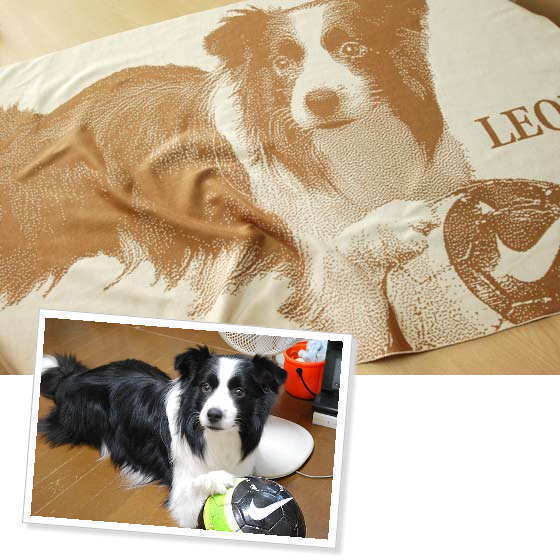
(From a review)
They were very happy with the beautifully made cushions.
They were an important member of my partner’s family, but they passed away in March, and after much deliberation about what I could do for them, I decided to order this, and both my partner and his family were very happy with it!
I am truly grateful.
Words of Comfort After Pet Loss—How Your Relationship Shapes What You Say
The words you say to someone who has lost a pet can vary greatly depending on your relationship with them.
If it’s someone very close to you, hearing about the loss might feel just as painful for you, too.
You may even find yourself at a loss for words because you share in their grief.
If the pet belonged to a family member you helped care for the animal with—or a partner whose pet you’ve spent a lot of time with—then sometimes just a simple phrase like:
“I see… Okay. I understand.”
…can say everything that needs to be said.
Your shared pain is already understood without having to explain it.
On the other hand, there are times when no matter what you say, it may not seem to reach the person.
In fact, that might happen more often than not.
In those cases, saying something short and gentle, like:
“I know this must be so hard. Please don’t push yourself.”
…may be more helpful than trying to say too much.
Next, let’s explore specific examples of what to say based on different situations and relationships.
Examples: What to Say Depending on Your Relationship
Let’s take a closer look at what you can say in different situations.
The right words often depend on your relationship with the person who has lost a pet.
In Social or Professional Settings
First, let’s talk about situations where the person is a colleague, supervisor, or someone you interact with in a formal environment.
There may be times when you learn—perhaps unexpectedly—that someone at work has lost a pet.
This isn’t unusual, because pet loss can deeply affect a person’s ability to focus, work, or interact normally. The grief is often overwhelming.
In a professional setting, a simple and respectful phrase is best to start with:
“I’m very sorry for your loss.”
“Please accept my sincere condolences.”
If you don’t have pets yourself, it’s still possible to show empathy with a phrase like:
“I’ve never had a pet, but I’ve heard it’s like losing a family member.”
This lets the other person know that you’re trying to understand and respect their grief, even if you haven’t experienced it yourself.
If you happen to love animals yourself, it’s perfectly okay to connect through that shared sentiment.
Just a gentle question can bring comfort:
“What kind of dog was it?”
“What was your cat’s name?”
Simple, open-ended questions like these can give the grieving person a chance to share their feelings if they want to.
At our shop, when customers contact us about creating a memorial item, we follow a similar approach.
We don’t ask too many personal questions at first. Instead, we wait to see if the customer is ready to open up.
As the conversation continues—often over several emails—we begin to understand their situation better.
When the time feels right, we gently share our own experiences or offer advice based on what they’ve told us.
The key is to listen first, and then respond with sincerity and empathy.
The words that made people who lost their pets happy to hear from their coworkers
Customers who have ordered memorial goods have posted their experiences.
Here are some of them.

From a woman in her 30s
Knit Cushion
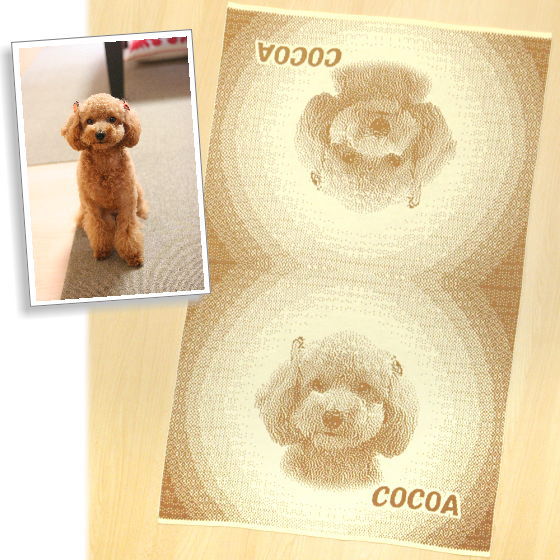
Male in his 40s
knit blanket
What to Say When a Close Friend Loses a Pet
When a close friend loses their beloved pet—especially someone you’ve often shared pet stories with—choose your words based on the relationship and memories you share.
Here are some examples of heartfelt things you might say:
“You cared for them so lovingly. I saw how much they meant to you, and I feel the loss too.”
“[Pet’s Name] passed away? I still remember the time we all played together.”
“This must be so painful. Please don’t push yourself—take all the time you need to rest and heal.”
These kinds of messages come from a place of connection and shared memories.
There’s no perfect script or universal phrase for situations like this—what matters most is speaking from the heart.
Be honest. Be gentle.
And above all, let your friend know they’re not alone.
What our customers have been happy to hear from their friends.
Please take a look at the experiences shared by our customers (Friends Edition)

Male in his 30s
Knit Cushion

Female in her 30s
Knot Cushion

Male in his 40s
Knit Cushion
Kind Words Matter—But Listening Matters Even More
Saying kind and thoughtful words is important.
But sometimes, simply listening is even more meaningful.
Encourage them to talk about what they’re feeling right now, the moment they said goodbye, or memories from when their pet was healthy and full of life.
Ask about the day they brought their pet home, the toys their pet loved, or other happy memories.
These stories can bring comfort.
A simple, heartfelt question like:
“What were they like?”
…can go a long way in showing that you care.
Talking can help calm their heart.
Sharing memories with someone can also help them make sense of their feelings and process their grief.
At our shop, we often receive phone calls and emails from customers who want to talk about their pets.
Many people cry while speaking, but by the end of the conversation, they often feel a little better.
They’ll say things like:
“I’ve never been able to talk about this with anyone before.”
You don’t always need to say much in return.
Just listening with gentle responses—like nods or soft words of encouragement—can make a big difference.
To learn more about why simply listening helps so much, please see:
“Why We Need Someone to Listen After Pet Loss”
People who were inspired by listening to the story

30-year-old woman
knit blanket

Women in their 40s
Knit Cushion
Responding according to the situation
The Words You Choose Depend on How the Pet Passed Away.
The way a pet passed—whether from illness, an accident, or suddenly—can shape the kind of words that offer the most comfort.
When a Pet Passed Away from Illness
One of our customers once called us in tears, saying they hadn’t been able to be there at the very end.
They had cared for their pet for a long time, providing love and support during a prolonged illness.
But when the time came, the pet passed away alone.
I believe that pets often choose to go when their owners aren’t around—not because they were abandoned, but because they didn’t want their loved ones to see them suffer.
Some pets may not want their owners to cry, and they quietly slip away on their own.
If someone regrets not being there at the very end, you might gently say something like:
“I think they were a very kind soul. Maybe they didn’t want you to see them suffer. Maybe it was too painful for them to see you cry.”
Words like these can offer a small sense of peace to someone who is overwhelmed with guilt.
When a Pet Passed Away Suddenly or in an Accident
Sometimes pets pass away very suddenly—whether due to a fast-acting illness or an unexpected accident.
In those moments, there’s no time to prepare emotionally, and the shock can make it even harder to accept the loss.
In such cases, many pet owners begin to blame themselves.
They may think:
“If only I had noticed the signs earlier…”
“It’s my fault for not being more careful…”
Helping someone through these feelings of guilt is essential.
You might say:
“They were such a gentle soul. Maybe they tried to hide their illness so you wouldn’t worry.”
“Even in an accident, they wouldn’t want to see you blame yourself. They loved you too much for that.”
And if you can’t find the right words in the moment, that’s okay too.
Just being honest is sometimes the most comforting thing you can do.
Try something like:
“I honestly don’t know what to say… This must be so hard. Please don’t hesitate to reach out if you need anything.”
Coming to terms with the fact that a beloved pet is truly gone takes time.
But while that healing takes place, the best thing we can do is be there for them—quietly, gently, and with compassion.
Words That Can Help Prevent Pet Loss Grief
The words we say to family or friends after they’ve lost a pet can play an important role in helping them cope—and may even prevent them from falling into deep grief.
Losing a beloved pet is always painful.
That pain may be unavoidable, but what makes it worse is when someone is met with cold or insensitive comments, or when they feel like they have no one to talk to.
If someone you care about is silently struggling with grief, please reach out and support them.
Sometimes, just being there—listening and offering quiet comfort—can make all the difference.
But what if someone does fall into deep sadness after losing a pet?
If a family member is experiencing pet loss grief, here’s how you can gently encourage and support them:
How to Comfort a Loved One Going Through Pet Loss
Words to Be Careful With: What Not to Say After Pet Loss
A Hurtful Comment I Personally Received
“Everyone feels sad when they lose a pet, so try to cheer up soon.”
This is something someone actually said to me.
I know they meant to encourage me—but in that moment, it made me feel isolated, as if I was the only one sinking so deeply into grief.
It felt like my pain was being minimized.
Everyone reacts differently, of course. But this experience taught me how important it is to choose words carefully and to be sensitive to how the other person might be feeling.
Words to Avoid When Supporting Someone Through Pet Loss
“Don’t cry.”
When you’re heartbroken, tears can come no matter how hard you try to hold them back.
Imagine being told not to cry in that moment—it can make the pain even worse.
You might wonder:
“Am I not even allowed to cry?”
When comforting someone grieving a pet, the most important thing is to listen and let them cry.
Understand that their tears are a reflection of deep pain—and allow them the space to release it.
“Cheer up soon.”
As I mentioned earlier, this phrase was painful to hear.
When someone is grieving, they may not be ready—or even want—to feel “better” yet.
Sometimes, they simply want to sit with their sadness.
Telling them to cheer up too quickly can add pressure and make them feel even worse.
Instead of encouraging them to “be strong” right away, offer words that invite rest and reflection:
“Take your time. It’s okay to feel whatever you’re feeling.”
Helping someone find the balance between moving forward and allowing themselves to grieve is far more healing.
“That’s so sad” / “That’s pitiful”
Some people say things like:
“Poor thing. She just lost her pet—so sad.”
While this might be okay in private conversations about someone, saying it directly to the grieving person can feel insensitive or patronizing.
They already feel raw and vulnerable.
Using language like “poor thing” can make them feel small, pitied, or even judged.
So, be mindful: speak with empathy, not just sympathy.
Speak to them, not about them.
Words can be powerful.
They can either comfort or hurt—especially in moments of grief.
Let’s choose them with kindness, care, and compassion.
When you can’t find the words
When you can’t find the words to express your feelings to someone who has lost a pet, you can express your feelings with a gift.
Here’s why gifts can help with pet loss.
We make cushions and blankets with photos of pets, so they are also used as gifts for people who have lost a pet.

We often hear messages like these from our customers after their gift has been delivered:
We receive touching stories like these almost every day.
It seems that these gifts, which preserve the warmth of memories in a tangible form, truly speak to the heart.
If you’re struggling to find the right words, a memorial gift might be a gentle and meaningful way to show you care.
—
Recommended Article: Gifts for Someone Grieving the Loss of a Pet
Related Story: How Memorial Gifts Brought Healing to Our Customers
Words I Heard When Our Pet Passed Away
Let me share our personal story of losing a beloved pet—both the comforting words we received and those that, unfortunately, made the grief harder to bear.
Words That Brought Comfort
One of the most comforting things someone said to us was:
“They lived a full life.”
At the time, we had a Newfoundland dog—which was a rare breed in our area back then.
We knew someone in a neighboring town who also had a Newfoundland. We’d often meet up to talk and let our dogs play together. That person also gave us helpful advice on health and care, and over time, we built a strong bond of trust.
When they said, “They lived a full life,” it helped us realize that our dog had reached a natural, peaceful end, and that we had done all we could. That brought a deep sense of peace and closure.
Another person, who knew how much time and care we had devoted to our dog during his illness, told us:
“I can really feel how much you loved Muku.”
That person had also lost a beloved dog before, so hearing them say they understood how we felt truly comforted us. It was one of the few things that made our hearts feel a little lighter.
When our cat passed away, my wife said something unexpected—but it touched me deeply.
If you’d like to know more, I’ve written about it here:
How My Wife’s Words Helped Me Through Pet Loss
Words That Hurt
Sadly, we also heard things that were hard to take.
The most painful was:
“But it was just a dog.”
Someone said, “I get that you’re sad—but it was a dog.”
I held back my anger, but the words hurt more than I can explain.
Another time, someone said:
“Crying won’t change anything.”
Maybe they meant to help or encourage us—but what we really needed in that moment was permission to grieve.
We didn’t need solutions.
We just needed time—and space—to cry.
Even well-meaning words can sometimes cause pain.
That’s why, when supporting someone through pet loss, it’s important to speak gently, and most of all—to listen with empathy.
When My Friend Lost Their Pet — The Words I Shared
when a close friend of mine lost their beloved cat
Let me tell you about what happened when a close friend of mine lost their beloved cat, and the words I chose to comfort them.
My friend was a true cat lover. Since I also have a cat, we often talked about our pets when we were together.
After many years of lovingly caring for their cat through illness, I received a message one day—telling me the cat had passed away and become a star in the sky.
It seemed they had already come to terms with the loss, and I knew they had received many messages of condolence.
So instead of saying “I’m sorry for your loss,” I replied:
“I see… thank you for letting me know. So they’ve become a star now. If the sky is clear tonight, I’ll go out and look for them.”
They answered:
“Yeah, I’m sure they’ll be the brightest one—you’ll spot them right away.”
And that was our conversation.
When you’re close to someone, sometimes a few simple words, meaningful only to the two of you, are enough.
I hope your kindness can bring even a little comfort to someone in need.
A Conversation from an Event
Sometimes, we participate in pet-related events where we display our custom-made memorial cushions.
At one such event, I learned that just days before, a beloved dog at the venue had passed away.
The staff member who had cared for the dog shared the news with visible sadness:
“He’s gone.”
I didn’t know what to say—so I just listened.
I had met the dog before, so I asked gentle questions:
How long had he lived there?
Where did he like to go for walks?
As the staff member spoke, I could sense they were happy to be able to talk about their beloved pet.
We didn’t dwell on sorrow—I simply listened as they shared happy memories.
Sometimes, there are no perfect words to say when someone loses a pet.
But just listening to their stories can be healing.
By hearing those memories, the pet lives on—not just in their heart, but now in yours too.
I believe that while a pet’s life may return to heaven, they continue to live in our hearts as long as we remember them.
So if someone seems like they want to talk, please take the time to listen.
Just having someone there to listen can ease the loneliness.
And surely, the pets watching from heaven would be glad to know we’re keeping their memory alive.
Speaking out loud can also help people see their own grief more clearly.
They may realize they’re not alone in feeling the way they do.
Later on, when they’ve had time to rest, you might invite them out for a walk, give them a small memorial gift, or simply continue to be there—quietly.
What’s most helpful depends on your relationship, and what they need in that moment.
But your kindness will surely bring them strength.
The dog who passed away at the facility was a large, gentle soul.
Not long after the event, we received an order from the staff—for a custom lap blanket made from his photo.
It became one of the most memorable pieces we’ve ever created.
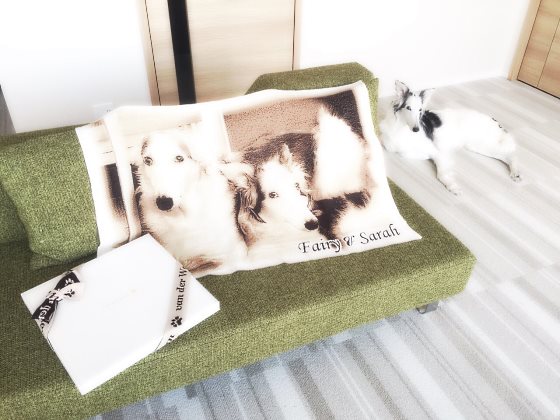
Related articles
People who read this page also frequently read the following articles:

